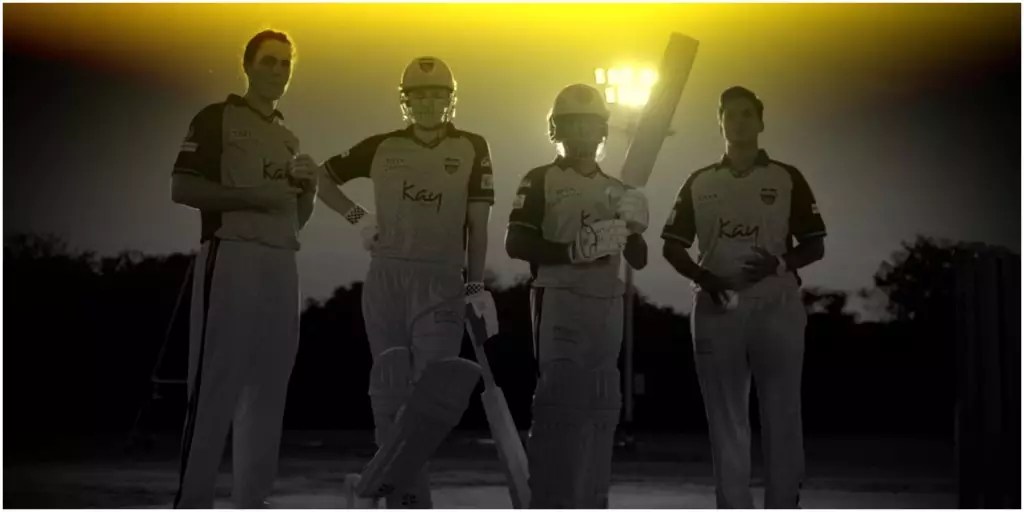The realm of sports has often been a reflection of societal values and cultural paradigms. In recent years, there has been a significant shift towards recognizing and enhancing women’s participation in sports, and a pivotal facet of this movement is the Women’s Premier League (WPL) in India, which launched in 2023. A new documentary titled “Floodlight,” directed by Arlene Nelson, undertakes the ambitious task of chronicling the formation and development of the WPL team, UP Warriorz. Beyond merely depicting the sport of cricket, “Floodlight” ventures into a narrative filled with ambition, struggle, and triumph—elements that resonate deeply within the broader context of women’s empowerment.
This documentary intricately weaves together the stories of seasoned and novice cricketers, offering an in-depth look at their journeys as they compete on an international stage and collaborate with world-renowned athletes. The WPL, often likened to its male counterpart, the Indian Premier League (IPL), promises unprecedented financial incentives for female athletes, thereby revolutionizing the landscape of women’s sports in India.
Produced by Art&M in collaboration with UTA for worldwide distribution, “Floodlight” emerges not just as a sports documentary but as a testament to the increasing visibility and prestige of women’s cricket. The show’s production team, including co-producers from Tudip Entertainment and Capri Global, is committed to illustrating the unique pathways women navigate in the sporting world. The showrunner Arnab Chakraborty emphasizes that the documentary is about much more than cricket; it serves as a powerful narrative on women from the Global South who are shattering stereotypes and redefining norms in competitive sports.
Through various segments, “Floodlight” promises an authentic portrayal of the cricketers’ experiences—from rigorous trials to the adrenaline-fueled atmosphere of international tours. It also showcases the high-stakes auction process, where players command monumental contracts, emphasizing the evolving financial dynamics within women’s cricket. By portraying such vivid and impactful narratives, the documentary aims to inspire a varied audience—sports enthusiasts and observers of cultural progression alike.
Arlene Nelson’s directorial prowess shines brightly through her previous works, such as the HBO series “Angel City,” which explored the inception of a women’s soccer team and their tumultuous journey toward greatness. Her previous directorial experiences have equipped her to tackle complex themes surrounding female representation in sports. With “Floodlight,” Nelson’s goal is not only to celebrate gains in women’s sports but also to expose the underlying struggles female athletes face.
Her capability to balance intense sports action with personal narratives is critical in creating a connection with viewers. The documentary is set to include “intimate scenes, compelling interviews, and dynamic broadcast footage.” This stylistic choice ensures that audiences are not only entertained but also emotionally invested in the players’ stories, establishing a human connection amid the competitive backdrop.
The global implications of the WPL and documentaries like “Floodlight” extend far beyond India. They symbolize a tide of change, encouraging women worldwide to pursue sports despite societal barriers. The investment and interest surrounding women’s cricket are emblematic of a larger recognition of women’s contributions and capabilities across various fields. As articulated by Chakraborty, this documentary encapsulates the essence of modern female athletes—their determination to excel, defy expectations, and advocate for equality in sports.
Moreover, the involvement of companies like Tudip Entertainment and Capri Global underlines a crucial shift: a growing acknowledgment that women’s empowerment should be at the forefront of sporting narratives. “Floodlight” is indeed a clarion call—showcasing not just the burgeoning popularity of women’s cricket, but also framing these athletes as role models for future generations.
As “Floodlight” prepares to hit screens, it operates within a broader societal framework advocating for increased investment and support for women’s sports. By illuminating the journeys of these pioneering athletes, the documentary fosters a collective spirit of aspiration and resilience. While the WPL marks a significant milestone for cricket, “Floodlight” aims to elevate women’s sports into a higher echelon of prominence. It stands not merely as an account of competition but as a narrative of empowerment, determination, and a bold step forward for women everywhere in the sporting arena and beyond.


Leave a Reply